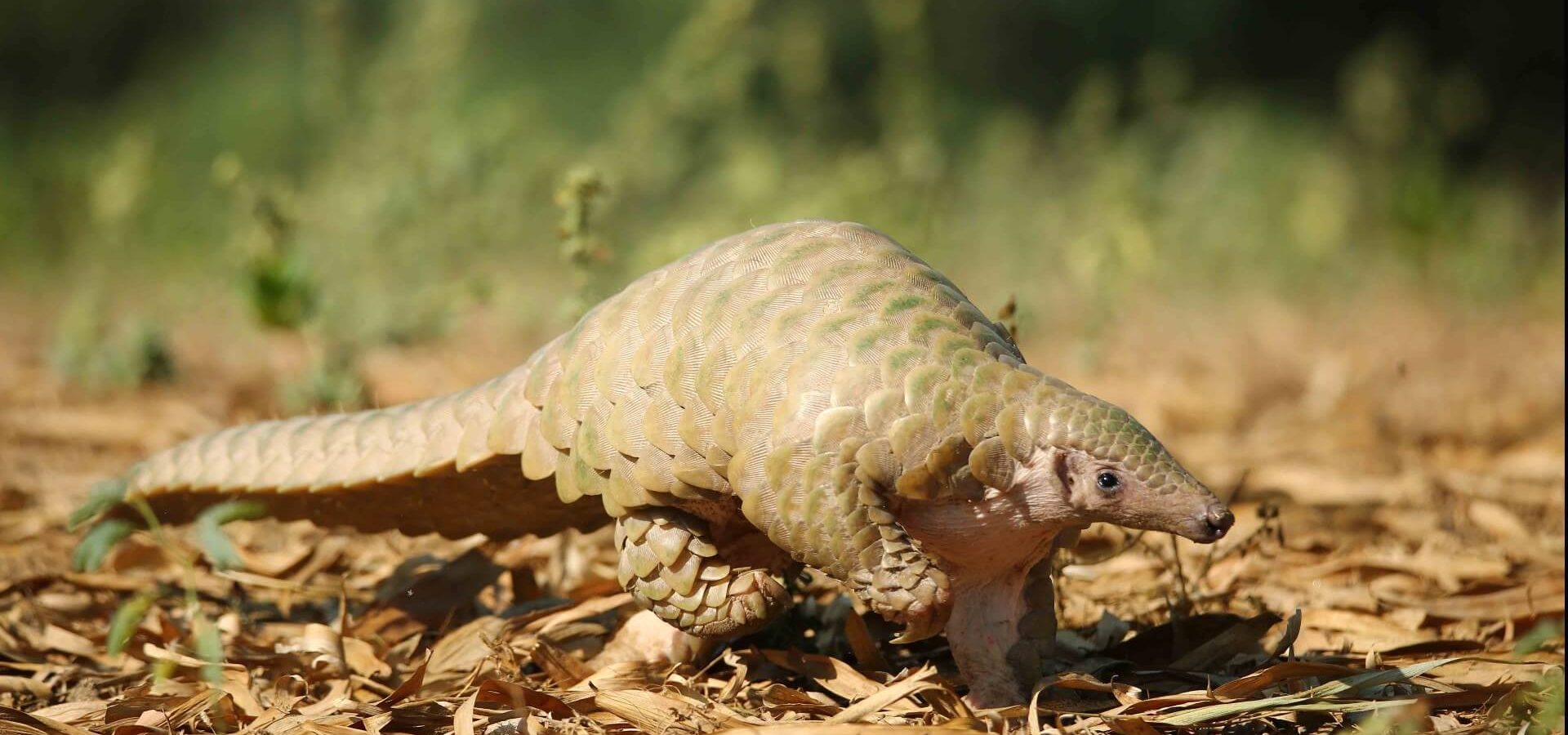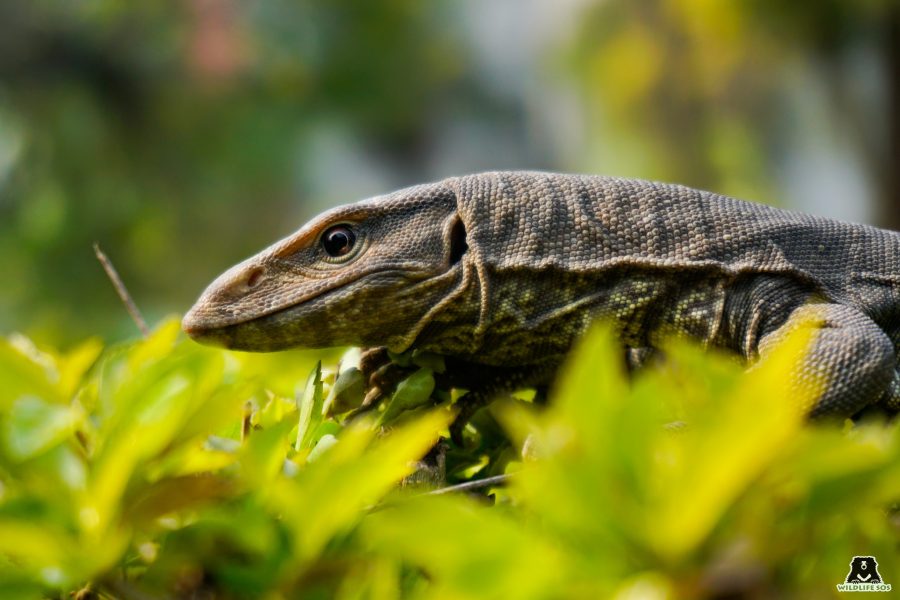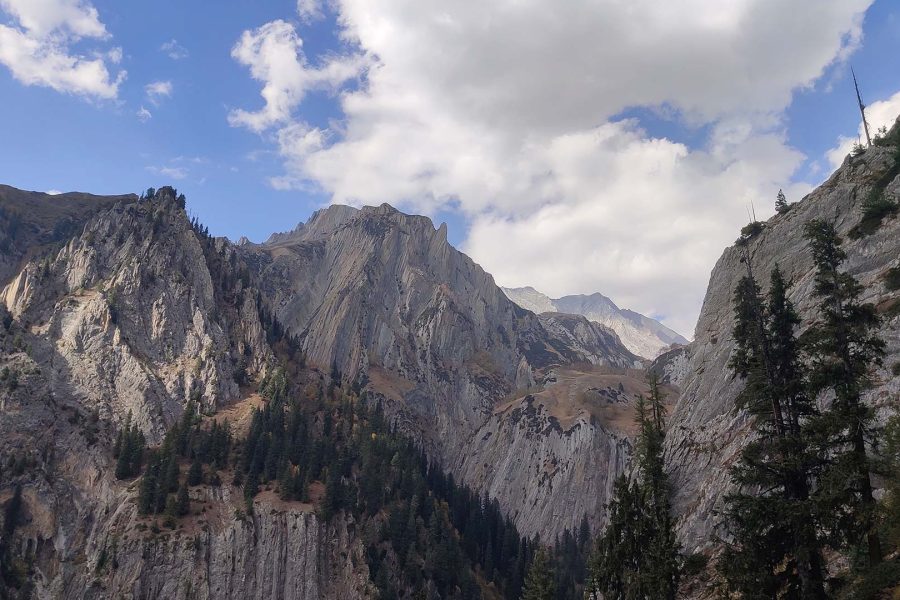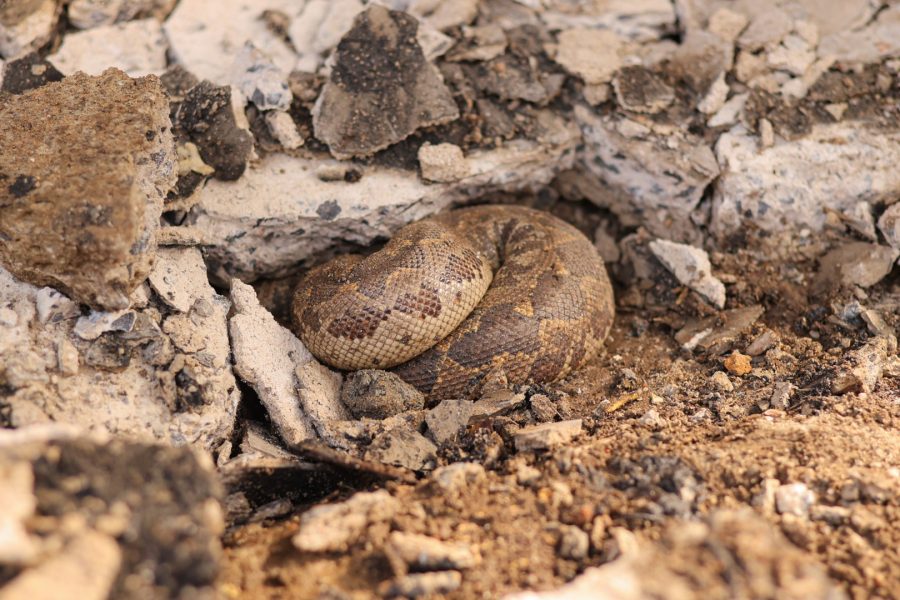The residents of a village in Agra, Uttar Pradesh, were in for an unexpected surprise when they spotted an odd-looking scaly animal in the middle of an open field. The residents immediately informed the Uttar Pradesh Forest Department who reached the location along with a team from Wildlife SOS. Upon closer investigation, the animal was identified as an Indian Pangolin – infamous as the world’s most trafficked animal!
The pangolin lay curled up in a ball as a part of its defence mechanism when threatened and was vulnerable to predators and poachers, immediately requiring safe extraction from such a dangerous situation. Being the highly sensitive animal that it is, the team from Wildlife SOS carefully transferred the pangolin to their transit facility for detailed medical check-up.
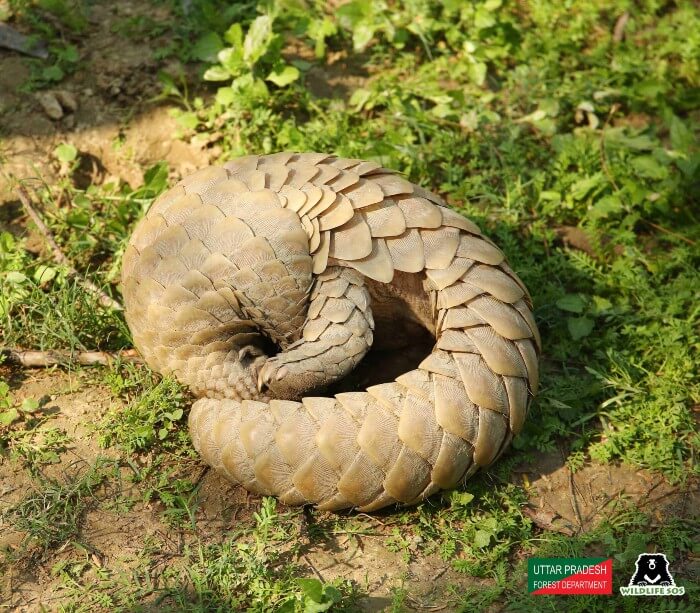
Our rapid response team and the Forest Department used the opportunity to educate the residents about the pangolin species, their importance in the ecosystem and what to do if they come across a pangolin again. The presence of the Indian Pangolin in the area proves to be a positive sign indicating rich biodiversity and marking an interesting leap in conservation of this endangered species. The Indian Pangolin is known to inhabit the rich wetland ecosystem of the Sur Sarovar Bird Sanctuary, which the Wildlife SOS’ Agra Bear Rescue Facility is a part of!
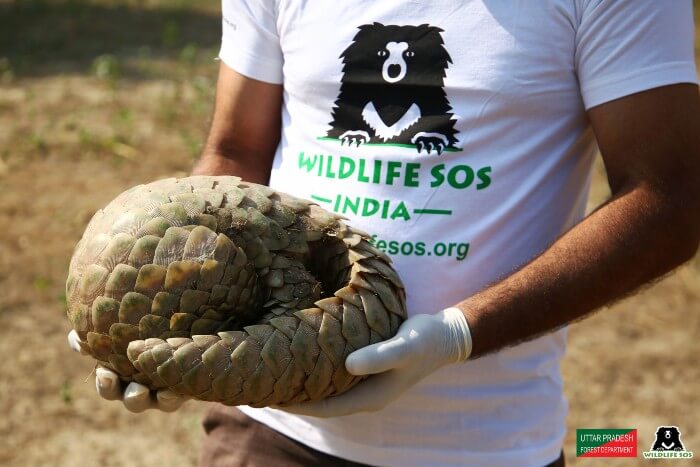
After a few days of medical observation, the pangolin was released back into its natural habitat, away from human habitation and under the supervision of the Uttar Pradesh Forest Department. The small animal took measured steps out of the safe-box and was quick to find a tree to catch a quick afternoon snack before disappearing into the thickets of the forest!
Pangolins are anteaters and play the important role of balancing the forest ecosystem by feeding on ants and termites. India is home to two pangolin species -The Indian pangolin (Manis crassicaudata) and the Chinese pangolin (Manis pentadactyla), both these species find themselves in an increasingly disadvantageous position. The harmless-looking pangolin is poached for the scales, made from keratin, and is believed to have medicinal qualities in the South Asian culture, making it the target for being ruthlessly killed and brutally de-scaled to fuel illegal wildlife trade.
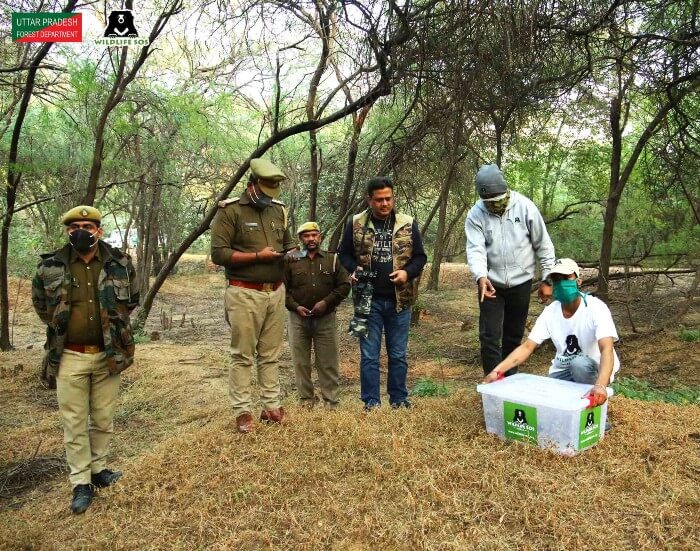
The Wildlife Protection Act 1972 enlists the Indian Pangolin under Schedule I of the Act, thus granting it the same protection as the Asian elephant and the tiger! The pangolin is protected under the Convention on International Trade in Endangered Species of Wild Flora and Fauna (CITES). It is unfortunate that the pangolins continue to be illegally hunted and traded for its meat and its scales, blood and other body parts are used for traditional Chinese medicine. Local trade of pangolin meat and scales have also been reported in the states of Andhra Pradesh, Kerala, Tamil Nadu, Orissa, Manipur, Tripura, Assam, Nagaland and West Bengal. Large consignments of dead pangolins and pangolin scales are seized at national and international borders by enforcement authorities, annually.
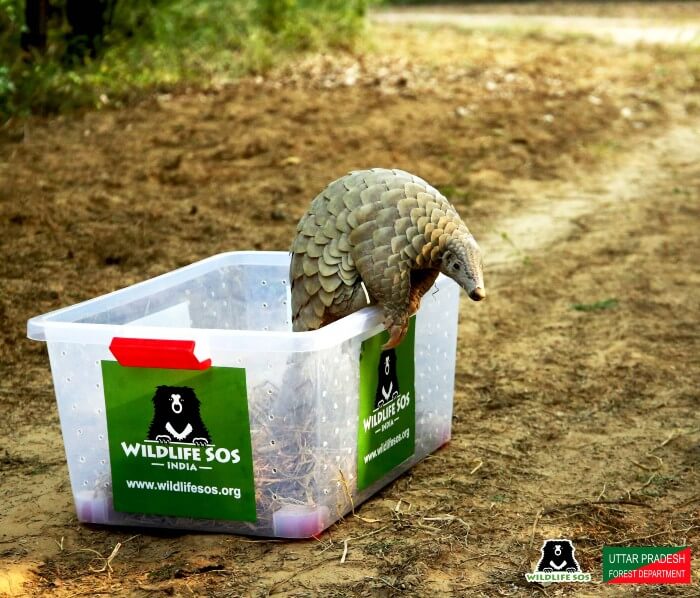
Pangolins have been targeted during the COVID19 pandemic as carriers, but do not hold any such valid or scientific connection. Such an incident is one of the many baseless rumours that surround these elusive species and rapidly deteriorates their numbers in the wild. The survival of the pangolin species in the wild is the need-of-the-hour. Extend your support and raise your voice for the protection of wild animals! If you ever see a wild animal in distress, please reach out to Wildlife SOS on our helpline numbers active in Delhi NCR (+91-9871963535), Mathura, Agra (+91-9917109666) and Vadodara (+91-9825011117)

